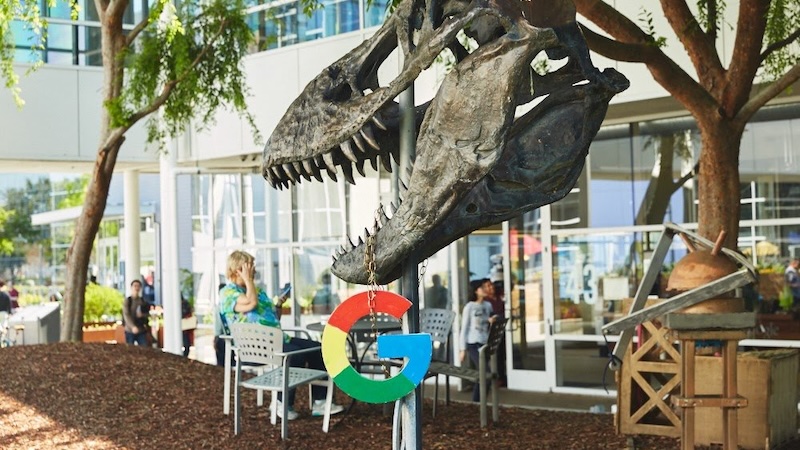
A US court has ruled that Google has a monopoly on internet searches. The US company would also have abused its market power to consolidate this position. But the verdict comes too late and will initially not change much – also because politics has failed. A comment.
As early as 2009, Google as a search engine would have had a market share of around 80 percent. This rose to 90 percent in 2020, according to US Judge Amit Mehta.
He certified the US company in a document that was almost 300 pages long Verdict therefore not only a monopoly in Internet searches, but also ruled that Google had abused its market power to consolidate this position.
So far so good: Because these numbers also work out statistics stand out – although they vary slightly between desktop and mobile devices.
Google has a monopoly: a judgment that comes too late
Google now officially has a monopoly on internet searches. Given the numbers, this should surprise very few people. What is rather surprising is that this fact has not been clarified long ago. Because the current ruling not only comes far too late. Rather, it shows a massive failure of politics!
Sure: As a user you could of course simply switch to another search engine, of which there are numerous. One could also argue that Google’s high market share is simply due to the popularity of the service – which, by the way, Google itself does. But the problem runs much deeper.
Many people don’t know any other search engines at all – also because they hardly ever see them. According to the US ruling, Google not only has a monopoly in Internet searches, but has also acquired this position in an anti-competitive manner.
For example, the company pays a lot of money to be the default search engine on Apple devices. The same applies to the Firefox browser. This is a gigantic competitive advantage in that many people rarely change the default settings on their devices.
False belief in the market: policy failure vs. Google
The verdict that Google has a monopoly was long overdue. However, there can now be no more castles in the air. The fact that Google was able to achieve this position and market at all is primarily due to the failure of politics.
The reason: false belief in the market. It should now be clear to those who complain loudest that a market without control does not create diffusion – especially not in the technology industry. In this respect, the market alone regulates: nothing.
This is also due to so-called network effects. Specifically, this means: A network is only as strong as its users, who Google has made dependent. A similar phenomenon can be observed with messenger services. Because: If you’re not on WhatsApp, you can’t have a say, so to speak.
Google has a monopoly – now what?
The biggest problem, however, is not just that the Google ruling comes far too late, which is also because the USA was proud of its large corporation for far too long. The certified Google monopoly will be difficult if not impossible to break up. First of all, there are no consequences from the decision.
They should be clarified in further proceedings. Google will likely appeal both cases, which in turn could result in a lawsuit that will last years, if not decades. Now, of course, you could go and present users with so-called selection screens, as the EU has done. But that turned out to be a flop.
The European Union is now showing people within Europe alternative search engines to choose from. However, these ads are apparently perceived as annoying and are clicked away. It makes more sense that bans should be issued so that the Google search engine no longer appears by default on Apple devices or in the Firefox browser.
Mozilla in particular is likely to have significant financial problems. The solution? Google would have to open up to the competition. There should no longer be price differences based on reach and market power. And above all: There should be an internet infrastructure that all search engines can use equally.
Also interesting:
- A lot of ambiguity: AI Act comes into force – and initially doesn’t change anything
- AI as a judge: The advantages and disadvantages of artificial intelligence in the judiciary
- Monitoring through AI: Germany needs an employee data protection law
- Dollars or data: what exactly is Pay or Okay?
The article A verdict far too late: Google has a monopoly – because politics has failed by Fabian Peters appeared first on BASIC thinking. Follow us too Facebook, Twitter and Instagram.
As a tech industry expert, I believe that the verdict declaring Google as having a monopoly is long overdue. The dominance of Google in the search engine market has been evident for years, and it is clear that the company has used its power to stifle competition and innovation.
The fact that politics has failed to address this issue sooner is concerning, as it highlights the challenges of regulating big tech companies effectively. It is crucial for policymakers to act swiftly and decisively to prevent monopolistic behavior and protect consumers and smaller businesses.
Moving forward, it is imperative that regulators continue to closely monitor Google and other tech giants to ensure fair competition and a level playing field in the industry. This verdict should serve as a wake-up call for policymakers to prioritize antitrust enforcement and ensure that tech companies are held accountable for their actions.
Credits